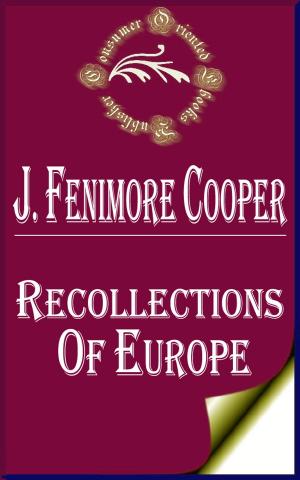| Author: | Rudyard Kipling | ISBN: | 1230001426915 |
| Publisher: | Consumer Oriented Ebooks Publisher | Publication: | November 14, 2016 |
| Imprint: | Language: | English |
| Author: | Rudyard Kipling |
| ISBN: | 1230001426915 |
| Publisher: | Consumer Oriented Ebooks Publisher |
| Publication: | November 14, 2016 |
| Imprint: | |
| Language: | English |
*This Book is annotated (it contains a detailed biography of the author).
*An active Table of Contents has been added by the publisher for a better customer experience.
*This book has been checked and corrected for spelling errors.
In American Notes, Rudyard Kipling, the Nobel Prize-winning author of the Jungle Book, visits the USA. As the travel-diary of an Anglo-Indian Imperialist visiting the USA, these American Notes offer an interesting view of America in the 1880s.
Kipling affects a wide-eyed innocence, and expresses astonishment at features of American life that differ from his own, not least the freedom (and attraction) of American women. However, he scorns the political machines that made a mockery of American democracy, and while exhibiting the racist attitudes that made him controversial in the 20th century concludes “It is not good to be a negro in the land of the free and the home of the brave.”
G. A. England of Harvard University (letter to The New York Times 10/11/1902) wrote: “To the American temperament, the gentleman who throws stones while himself living in a glass house cannot fail to be amusing; the more so if, as in Mr Kipling’s case, he appears to be in a state of maiden innocence regarding the structure of his own domicile.”
*This Book is annotated (it contains a detailed biography of the author).
*An active Table of Contents has been added by the publisher for a better customer experience.
*This book has been checked and corrected for spelling errors.
In American Notes, Rudyard Kipling, the Nobel Prize-winning author of the Jungle Book, visits the USA. As the travel-diary of an Anglo-Indian Imperialist visiting the USA, these American Notes offer an interesting view of America in the 1880s.
Kipling affects a wide-eyed innocence, and expresses astonishment at features of American life that differ from his own, not least the freedom (and attraction) of American women. However, he scorns the political machines that made a mockery of American democracy, and while exhibiting the racist attitudes that made him controversial in the 20th century concludes “It is not good to be a negro in the land of the free and the home of the brave.”
G. A. England of Harvard University (letter to The New York Times 10/11/1902) wrote: “To the American temperament, the gentleman who throws stones while himself living in a glass house cannot fail to be amusing; the more so if, as in Mr Kipling’s case, he appears to be in a state of maiden innocence regarding the structure of his own domicile.”















